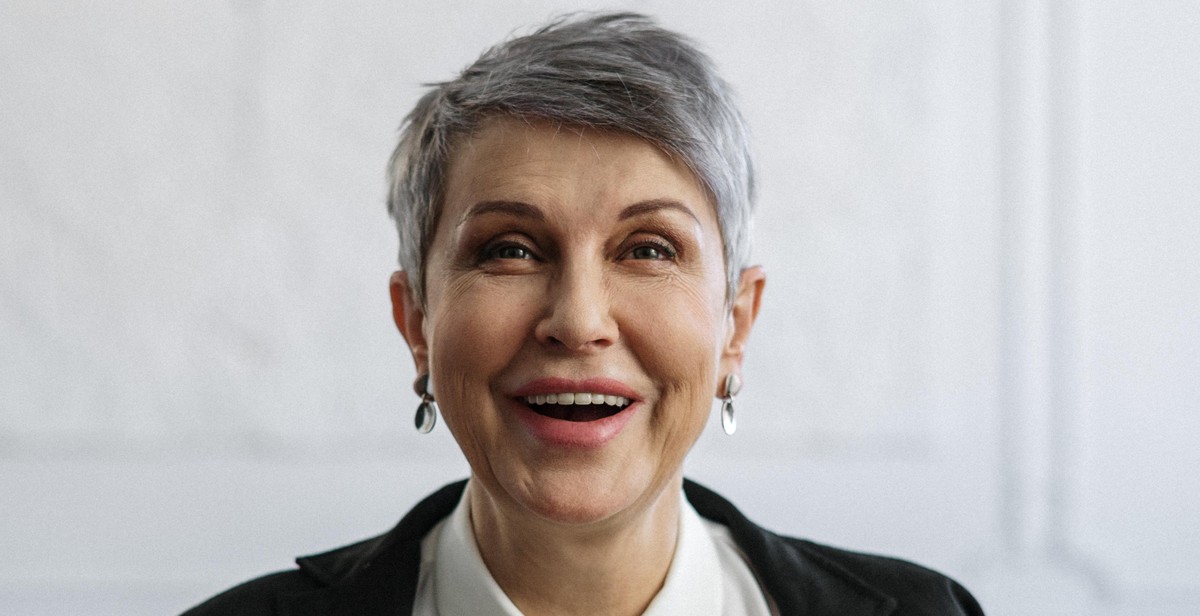Aging and Mental Health: The Unspoken Issues
Aging is a natural process that everyone goes through, but it can come with its own set of challenges. Mental health is one of the most critical issues that older adults face, but it is often overlooked and goes unaddressed. The stigma surrounding mental health can make it challenging for older adults to seek help, even when they may need it the most.
The Importance of Mental Health in Aging Adults
Mental health is just as crucial as physical health, and it is essential to maintain a healthy mind as we age. As we grow older, we may experience significant life changes, such as retirement, loss of loved ones, and physical health problems, which can impact our mental well-being. It is crucial to address these issues and seek help when needed to maintain a good quality of life.
The Unspoken Issues of Aging and Mental Health
Despite the importance of mental health in aging adults, it is often an unspoken issue. Many older adults may not have access to mental health resources, or they may feel ashamed or embarrassed to seek help. Additionally, mental health issues in older adults may be misdiagnosed or go unnoticed due to the misconception that it is a normal part of aging.
It is crucial to address the unspoken issues of aging and mental health and provide resources and support to older adults who may be struggling. By breaking the stigma surrounding mental health and encouraging open communication, we can help older adults maintain their mental well-being and overall quality of life.

The Impact of Aging on Mental Health
Aging is a natural process that brings about several physical and mental changes in a person’s life. While some seniors may age gracefully, others may struggle to cope with the changes that come with aging. Mental health is one aspect that is often overlooked when discussing aging. However, it is a crucial factor that affects the quality of life of seniors. In this section, we will explore the impact of aging on mental health.
Physical Changes and Mental Health
As we age, our bodies undergo several physical changes, such as decreased mobility, chronic pain, and medical conditions like dementia and Alzheimer’s disease. These physical changes can have a significant impact on mental health. Seniors may experience depression, anxiety, and other mental health issues due to their physical limitations. For instance, chronic pain can lead to depression and anxiety, which may affect a senior’s overall quality of life.
Social Isolation and Loneliness
Social isolation and loneliness are two significant issues that affect seniors’ mental health. As people age, their social circles tend to shrink due to factors such as retirement, the death of friends and family members, and physical limitations. Seniors who live alone may feel lonely and isolated, leading to depression, anxiety, and other mental health problems. Furthermore, social isolation and loneliness can exacerbate physical health problems, further affecting mental health.
Financial Stress and Mental Health
Financial stress is another issue that affects seniors’ mental health. As people age, they may face financial challenges due to retirement, reduced income, and increased medical expenses. Financial stress can lead to depression, anxiety, and other mental health problems. Seniors who are struggling financially may feel hopeless and helpless, which can negatively impact their mental health.
| Physical Changes | Social Isolation | Financial Stress |
|---|---|---|
| Decreased mobility | Retirement | Reduced income |
| Chronic pain | Death of friends and family members | Increased medical expenses |
| Dementia and Alzheimer’s disease | Living alone |
Overall, aging can have a significant impact on mental health. Physical changes, social isolation and loneliness, and financial stress are just a few of the issues that can affect seniors’ mental health. It is essential to address these issues and provide seniors with the support they need to maintain their mental health and well-being.

Common Mental Health Issues in Older Adults
As we age, our bodies and minds undergo a lot of changes. These changes can lead to different mental health issues. Below are some of the most common mental health issues that older adults experience:
Depression
Depression is a common mental health issue that affects many older adults. It is a mood disorder that causes persistent feelings of sadness, hopelessness, and loss of interest in activities that one used to enjoy. Depression can also cause physical symptoms such as fatigue, sleep disturbances, and changes in appetite.
Depression can be caused by various factors such as a family history of depression, chronic illnesses, and social isolation. It is important to seek help from a healthcare professional if you or a loved one is experiencing symptoms of depression.
Anxiety
Anxiety is another common mental health issue that affects older adults. It is a feeling of unease, such as worry or fear, that can be mild or severe. Anxiety can cause physical symptoms such as sweating, trembling, and rapid heartbeat.
Anxiety can be caused by various factors such as a family history of anxiety, chronic illnesses, and life changes such as retirement or the loss of a loved one. It is important to seek help from a healthcare professional if you or a loved one is experiencing symptoms of anxiety.
Dementia
Dementia is a group of symptoms that affect memory, thinking, and social abilities. It is a common mental health issue that affects older adults. Dementia can be caused by various factors such as Alzheimer’s disease, Parkinson’s disease, and stroke.
People with dementia may have difficulty with everyday activities such as dressing, bathing, and eating. They may also experience changes in mood and behavior. It is important to seek help from a healthcare professional if you or a loved one is experiencing symptoms of dementia.
| Mental Health Issue | Causes | Symptoms |
|---|---|---|
| Depression | Family history, chronic illnesses, social isolation | Sadness, hopelessness, loss of interest, fatigue, sleep disturbances, changes in appetite |
| Anxiety | Family history, chronic illnesses, life changes | Worry, fear, sweating, trembling, rapid heartbeat |
| Dementia | Alzheimer’s disease, Parkinson’s disease, stroke | Memory loss, difficulty with everyday activities, changes in mood and behavior |

Barriers to Seeking Help
Despite the prevalence of mental health issues among older adults, seeking help for these issues can be challenging. Below are some of the most common barriers that prevent older adults from seeking help:
Stigma
Stigma surrounding mental health issues can be a significant barrier for older adults seeking help. Many older adults grew up in a time when mental health issues were heavily stigmatized and seen as a personal weakness. This stigma can prevent older adults from seeking help for fear of being judged or ostracized by their peers.
Lack of Access to Care
Access to mental health care can be a significant barrier for older adults, particularly those living in rural or remote areas. Many older adults also face financial barriers to accessing care, as mental health services can be expensive and not covered by insurance.
Lack of Awareness
Many older adults are not aware of the mental health resources available to them. This lack of awareness can prevent them from seeking help when they need it. Additionally, some older adults may not recognize the symptoms of mental health issues or may dismiss them as a normal part of aging.
Overall, addressing these barriers will be crucial in ensuring that older adults receive the mental health care they need. By raising awareness of available resources, reducing stigma, and improving access to care, we can help older adults live happier, healthier lives.

Supporting Mental Health in Aging Adults
As people age, they may experience changes in their mental health that can be challenging to cope with. It is important to support aging adults in maintaining good mental health and preventing or managing mental health conditions.
Regular Check-Ins and Support
Regular check-ins with aging adults can help identify any changes in their mental health and provide an opportunity to offer support. This can include family members or caregivers checking in on them, or scheduling regular visits with a mental health professional.
Encouraging Social Connections
Social connections can play a crucial role in maintaining good mental health. Encouraging aging adults to participate in social activities and stay connected with friends and family can help prevent feelings of isolation and depression. This can include joining a community group or club, attending social events, or simply spending time with loved ones.
Access to Mental Health Services
Access to mental health services is vital for aging adults who may be experiencing mental health challenges. This can include counseling, therapy, or medication management. It is important to ensure that aging adults have access to these resources and are aware of the services available to them.
Overall, supporting mental health in aging adults requires a combination of regular check-ins, social connections, and access to mental health services. By prioritizing these factors, we can help aging adults maintain good mental health and improve their overall quality of life.

Conclusion
As we age, mental health becomes an increasingly important issue that should not be ignored. The unspoken issues surrounding aging and mental health can have a significant impact on the quality of life for older adults and their loved ones. It is essential to understand the risk factors and warning signs associated with mental health conditions in older adults and seek appropriate care and treatment.
Older adults who experience mental health issues may face unique challenges, including stigma, lack of access to care, and social isolation. It is crucial to address these issues and provide support and resources to older adults and their families.
As a professional and experienced content creator, I have seen firsthand the impact that mental health can have on older adults. It is essential to continue raising awareness about the importance of mental health in aging and to work towards creating a society that values and supports the mental health of older adults.
- Recognize the importance of mental health in aging
- Understand the risk factors and warning signs associated with mental health conditions in older adults
- Seek appropriate care and treatment for mental health issues in older adults
- Address the unique challenges faced by older adults with mental health issues, including stigma, lack of access to care, and social isolation
- Provide support and resources to older adults and their families
Together, we can work towards promoting mental health and well-being for older adults and creating a society that values and supports the mental health of all individuals, regardless of age.
